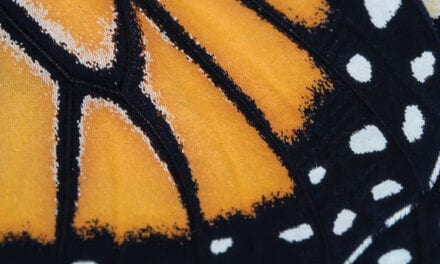Lately, I’ve been reading a riveting page-turner called “The Etymologicon.” It’s a book about etymology, which is the study of word origins (and nothing to do with insects). Now, I heard a few of you say, “Is he crazy?” and I confess I should probably plead the Fifth on that, however, now and again, you come across pure nuggets of priceless trivia in such books, and this book is a treasure trove. They can be so valuable for party chat when conversation falters, after the usual “how do you know so and so?” and “what do you do at work?” or filling the silence after “can I have your phone number?” I’m not joking when I say that this is a funny book, but of course it does rather depend on your sense of humor.
“Later, I will run out and buy shares in Icon Books since I will undoubtedly double the American sales of his work through this article.”
First, a word about plagiarism—several words, actually: The word derives from the Greek (plagion) and Latin (plagium), both words for kidnapping (that’s the product of independent research, not the book). This is a federal offense. So before I get carted off to Rikers Island or some other equally salubrious venue, let me make plain that when I present paraphrased quotes from the book for your erudition, I am actually trying to enhance the income of the probably penurious inky fool who wrote “The Etymologicon” and not present his studious work—possibly borne of long hours in dusty library basements or on the internet—as my own. Later, I will run out and buy shares in Icon Books since I will undoubtedly double the American sales of his work through this article. This will be entirely legal. Here are a few paraphrased examples from the book with added information.
After 884 CE, there was a large area in the north and east of Britain that was settled and ruled over by the Vikings; it was called the Danelaw (see map). Sometime after this date, a Viking, possibly a warrior who survived the many battles of the time, discovered a sedge-filled stream in the area that he thought would be a good place to settle down and raise a family. Being of a creative mindset, he named his settlement “Sedge-Stream,” but in his native language, Old Norse, this translates as “Starbeck” (“beck” is a common name for streams all over the northeast of England). The man’s family prospered and, as was often the way in the Middle Ages, his progeny were named after the place. There is a 1379 record of a family named Starbuck living in the identical place. Nowadays, Starbeck is an eastern suburb of Harrogate (itself derived from Old Norse), a spa town a few miles west of York (Jorvik) famous for its waters and for Betty’s Tea Rooms and Yorkshire Tea.

The Starbucks became Quakers and, during the period when Quakers were unpopular in England for their religious beliefs, like William Penn who founded Pennsylvania, they emigrated west and were among the first settlers of Nantucket Island. They became famous in the whaling industry, so much so that when Herman Melville wrote “Moby-Dick,” about a famous white whale and the ship Pequod that sought it, he named the first mate Starbuck in the family’s honor.
“Moby-Dick” became, and still is, a well-known book, and an English teacher in Seattle named Jerry Baldwin loved it. Baldwin and two friends wanted to open a coffee shop and he came up with a name for it that he suggested to his partners—Pequod. This didn’t go down well with them as they didn’t think a name that began with pee quite suited a coffee shop. They suggested the name of a Rocky Mountain mining settlement they found on a map—Starbo. This resonated with Baldwin and they settled on the Pequod’s first mate’s name—Starbuck. So, when next you are hunting somewhere in the world for a coffee shop, you might come across one that is named after a sedge-filled stream in Yorkshire, England. Try asking for a sedge-flavored coffee! Really, it’s a new thing.
The Greeks were great philosophers and their children (paedos) were taken through a whole cycle (cyclos) of education. The erudition this produced apparently so impressed the Romans that they wrote books meant to contain articles on every topic there was. Rather like the articles I’ve been writing for Serenity for seven years. The Romans called them encyclopaedias. Two thousand years later, the internet came into being, but was bedeviled by a proliferation of programming languages. In 1994, a gentleman named Ward Cunningham developed a system of making related webpages that would be much simpler and faster. There are several languages, for instance Malay and Hawaiian, that use repeated words for a plural, rather than the way a simple ‘s’ or ‘ies’ works in English. Hence, in Malay, a butterfly is rama-rama, so butterflies are rama-rama-rama-rama. The duplication can also signify an emphasis on the meaning. In Hawaiian, wiki means fast, but because Cunningham’s system was so very fast, he called it wikiwikiweb. In 2001, Larry Sanger had the idea of a collaborative, web-based encyclopaedia, so, being a new thing, he had to name it and stuck together two parts of the words, the Hawaiian wiki and the Greek paedia creating Wikipedia. Wikipedia’s statistics are astronomical, claiming 365 million readers and more than 46,000 editors. By 2021, it was accessed by up to 70 million devices a day. Probably few of the users know that its literal name is Fastchild. Now you do!
The mythology of many cultures, for instance the Maori and Aztecs, imagine butterflies to be a human soul freed of the burden of life. Even the Greeks may have thought this, as the Greek for butterfly was psyche and Psyche was the goddess of the soul. Sigmund Freud invented a name for his new psychological methodology: psychoanalysis. Analysis is Greek for release so his new method was literally the liberation of the butterfly.

These are just three examples of the many fascinating insights the book offers. I could go on and on, as Mark Forsyth, the writer of the book, does, explaining why JFK was a donut, why women inject sausage poison into their faces, why the word Nazi was abhorrent to Hitler, why money is bad, why black is blank, and why you should be careful saying ciao to people. The blurb on the back of the book describes it as “occasionally ribald, frequently witty and unerringly erudite.” In his short bio, Forsyth describes himself as a writer, journalist, proofreader, ghostwriter, and pedant. He says he “was given a copy of the Oxford English Dictionary as a christening present and has never looked back.” He has a blog at blog.inkyfool.com, if you are interested, and currently you can find out why the mini in miniature has nothing to do with minute, minimum, or miniskirt, and what an epistrophe is. Excuse me now, but I have to figure out how to buy those shares.
© David Cuin 2023




